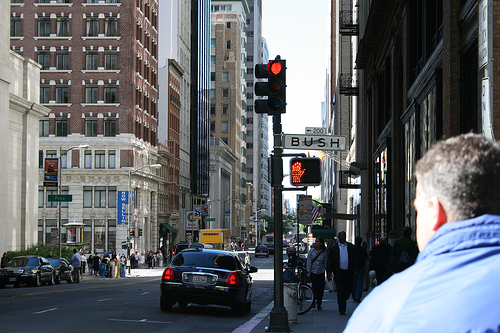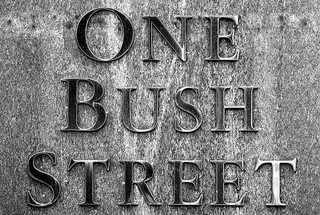Under California foreclosure law, a trustee’s sale eliminates all interests in the property that are recorded after the deed of trust was recorded. For that reason, holders of interests want to get notice that the property is being foreclosed. Generally, the foreclosing trustee is only required to provide notice of the recording of the notice of default to the parties identified in statutes or specified in the deed of trust. Other persons with lesser interests that are junior to the deed of trust are not automatically entitled to notice. Civil Code section 2924b(a) provides a process for anyone to record a request for notice, which then obligates the trustee to send them a copy of the Notice Of Default. Civil Code 2924b (b), set out in full below, describes who otherwise must be provided notice. The trick is whether you are included in the specified categories. In a recent decision, an easement holder was disappointed to learn that he was not, and the easement was lost. They should have recorded a request for a copy of the notice of default.
 In George Perez as Trustee v. 222 Sutter St. Partners, there was a foreclosure and the subsequent quiet title action was about whether the foreclosure of 425 Bush Street in San Francisco extinguished easement rights. The easement holder had not received notice from the trustee of the foreclosure.
In George Perez as Trustee v. 222 Sutter St. Partners, there was a foreclosure and the subsequent quiet title action was about whether the foreclosure of 425 Bush Street in San Francisco extinguished easement rights. The easement holder had not received notice from the trustee of the foreclosure.
The easement holders argued that an easement holder is included in section 2924b, subdivision (c)(2)(A), as “[a] successor in interest, as of the recording date of the notice of default, of the estate or interest or any portion thereof of the trustor or mortgagor of the deed of trust or mortgage being foreclosed. It continued that it was a successor to the mortgagor of the deed of trust, who was the owner. But this is impossibility. An easement is an interest, but the mortgagor/owner cannot own an easement across one’s own property. Thus, the easement holder cannot be a successor to that interest.
The court delved into the legislative history behind Civil Code section 2924b, and could find no support for noticing an easement holder. It concluded the contrary; that the legislature sought to balance between the obligations of trustees and the holders of interests in real property. What easement holders need to do is record a request for notice of any default of a loan superior to their interest.
 Civil Codes section 2924b:
Civil Codes section 2924b:
(2) The persons to whom notice shall be mailed under this subdivision are:
(A) The successor in interest, as of the recording date of the notice of default, of the estate or interest or any portion thereof of the trustor or mortgagor of the deed of trust or mortgage being foreclosed.
(B) The beneficiary or mortgagee of any deed of trust or mortgage recorded subsequent to the deed of trust or mortgage being foreclosed, or recorded prior to or concurrently with the deed of trust or mortgage being foreclosed but subject to a recorded agreement or a recorded statement of subordination to the deed of trust or mortgage being foreclosed.
(C) The assignee of any interest of the beneficiary or mortgagee described in subparagraph (B), as of the recording date of the notice of default.
(D) The vendee of any contract of sale, or the lessee of any lease, of the estate or interest being foreclosed that is recorded subsequent to the deed of trust or mortgage being foreclosed, or recorded prior to or concurrently with the deed of trust or mortgage being foreclosed but subject to a recorded agreement or statement of subordination to the deed of trust or mortgage being foreclosed.
(E) The successor in interest to the vendee or lessee described in subparagraph (D), as of the recording date of the notice of default.
(F) The office of the Controller, Sacramento, California, where, as of the recording date of the notice of default, a “Notice of Lien for Postponed Property Taxes” has been recorded against the real property to which the notice of default applies.
Photos:
https://www.flickr.com/photos/veisto/894715560/sizes/m/
https://www.flickr.com/photos/thomashawk/29849153/sizes/n/
 California Real Estate Lawyers Blog
California Real Estate Lawyers Blog

